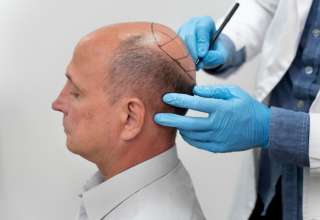The days of dismissiveness around addiction have finally gone away. It’s clear now that, with accessibility to many powerful drugs, addiction is a widespread mental health problem. Luckily, as the substances and tendencies have changed, so have the responses. There has never been a more informed time on substance abuse and addiction. As people’s needs have changed, so have the treatments. Below are the ways that addiction has changed, and will continue to change to meet people’s needs.
Co-Occurring Mental Health Disorders
One huge aspect of addiction that was ignored for many years was the amount of co-occurring mental health disorders that many people who use substances are going through. For example, so many people are self-medicating their disorders and trauma with drugs and alcohol. A lot of these people don’t even know they are struggling with something under the surface.
Therefore, dual diagnosis treatment has become a mainstay of addiction recovery. Dual diagnosis is when the addiction center doesn’t just treat substance abuse and dependence, but also takes into account the underlying mental health issue. To establish long-term sobriety and health, the problems under the surface need to be addressed. When it comes to co-occurring mental health disorders, dual diagnosis is one of the best paths forward.
Variety of Treatment Modalities
The cliché “addict” is no longer seen as a caricature of people struggling with addiction. The truth is people from all walks of life struggle with addiction and dependence. Each person is different and needs different things. With substance abuse, the range of treatments was often too narrow. This has changed over time.
Nowadays, there is a wide variety of treatment modalities people can choose from. There is the most common inpatient treatment, which is when the person goes into recovery treatment for at least a month. Inpatient is the classic cliché of rehab in movies and TV shows, but it has proven to be quite effective for many people.

On the other hand, outpatient treatment allows people to sleep at home and come in daily or a few times a week for counseling and meetings. This is designed for people who are highly functional and don’t need a detox. Many of the people who go into treatment for addiction will experience withdrawals and therefore need professional medical supervision. Outpatient treatment is for people who don’t withdraw and can stay sober at home with the help of addiction professionals.
Beyond inpatient and outpatient, there is residential treatment. This is when the person goes to stay in a house with other patients. Here they create a sense of community while they go through the process of withdrawal, counseling, and 12-step meetings. Residential treatment can be a long-term form of sober living, where people in recovery live together to support each other and create an environment they are comfortable.
Finally, luxury rehab is the outlier. This is for people who have the money to spend on high-end doctors, counselors, and psychologists in a setting that provides amenities and privacy. Luxury rehabs can have pools and spas. They can have massages on-site and yoga classes. It takes a more holistic approach to recovery, but you have to be able to afford it.
New Drugs & Addictions
With so many of the most powerful prescription drugs now found on the streets in some form, the addiction recovery community has had to change the way they approach certain addictions. For example, you have probably heard about the fentanyl crisis. Fentanyl is a synthetic opioid painkiller that was originally developed as a pain reliever for terminal cancer patients. Now it is found on the streets and laced with other drugs.
Drug dealers are lacing heroin and cocaine with fentanyl because it is cheaper. Fake versions of the prescription pill have lethal doses of the drug. It’s drugs like fentanyl that have specialized treatment and established new facilities. There is now fentanyl treatment in Utah, California, New York, and more.
Addiction has changed. It has become more widespread. It is being acknowledged as a complex mental health issue. There are new drugs and new treatment modalities. Addiction recovery specialists have switched gears in many ways to provide meaningful, effective treatment to all types of people with all types of addictions. It will continue to change in response to it.











